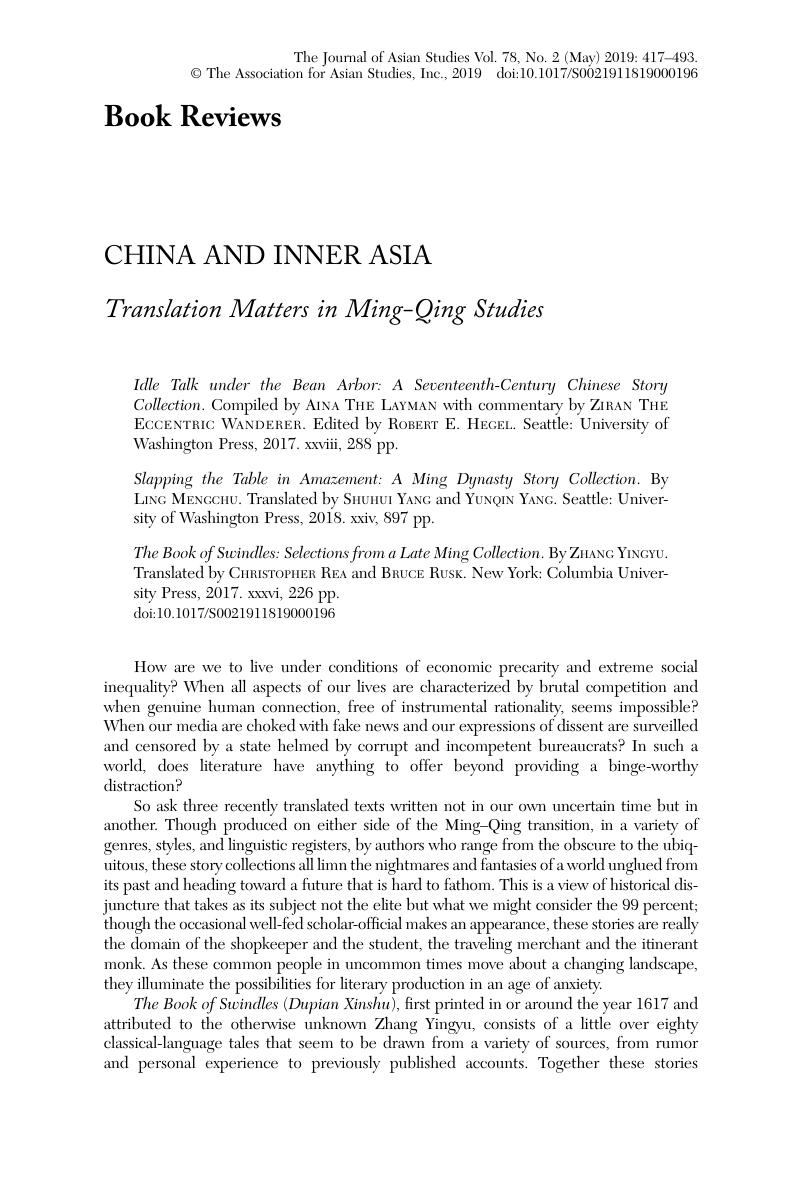No CrossRef data available.
Article contents
Translation Matters in Ming-Qing Studies - Idle Talk under the Bean Arbor: A Seventeenth-Century Chinese Story Collection. Compiled by Aina The Layman with commentary by Ziran The Eccentric Wanderer. Edited by Robert E. Hegel. Seattle: University of Washington Press, 2017. xxviii, 288 pp. - Slapping the Table in Amazement: A Ming Dynasty Story Collection. By Ling Mengchu. Translated by Shuhui Yang and Yunqin Yang. Seattle: University of Washington Press, 2018. xxiv, 897 pp. - The Book of Swindles: Selections from a Late Ming Collection. By Zhang Yingyu. Translated by Christopher Rea and Bruce Rusk. New York: Columbia University Press, 2017. xxxvi, 226 pp.
Published online by Cambridge University Press: 10 May 2019
Abstract

- Type
- Book Reviews—China and Inner Asia
- Information
- Copyright
- Copyright © The Association for Asian Studies, Inc. 2019
References
1 The dates of composition and publication for this collection are still a subject of debate. Robert Hegel claims in his introduction that the collection appeared around the year 1660, but in his discussion of dating the earliest editions he does not provide evidence for anything more specific than the early Kangxi era (Aina, pp. xi, 227). Patrick Hanan argues that the collection likely appeared shortly after the 1668 publication of the Ji Dian Quanzhuan that was revised by Wang Mengji, whom Hanan believes is the probable identity of Aina Jushi. Hanan, Patrick, The Chinese Vernacular Story (Cambridge, Mass.: Harvard University Press, 1981), 191–92CrossRefGoogle Scholar.
2 Wu, Yenna, trans., “Aina Jushi: Idle Talk under the Bean Arbour: Excerpts,” Renditions 44 (1995), 17–33Google Scholar.


